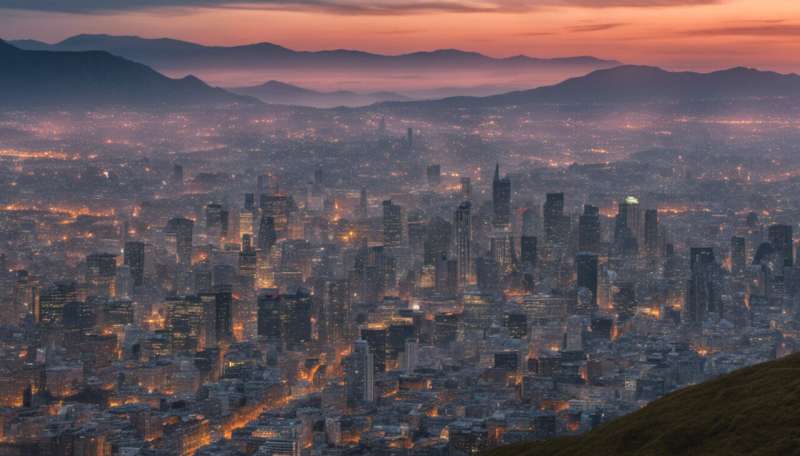How to make climate action popular

Ambitious action is needed to stop average global temperatures rising above 1.5°C. But some measures to cut fossil fuel use and develop alternative industries have provoked resistance. Wind farms can be a common source of public ire, and so can carbon taxes—as large protests in France and show.
Opposition to climate action can also arise when people are faced with the consequences of moving away from fossil fuels in everyday life, whether it's changes to how we travel, eat, and heat or cool our homes. Even where people are broadly in favor of doing something about climate change, that support can evaporate when it involves changes to their daily routines.
So what's the secret to making climate action popular? Scholars have converged on two key ingredients: equity and participation.
Equity
The should be fairly distributed, and people who are likely to struggle to cope with any changes need support. In British Columbia, Canada, resistance to broad-based carbon taxes on fossil fuels in transport and electricity generation has been mild. One reason for this is that the provincial government offered low-income residents tax credits to balance out the financial hit.
The yellow vests movement (gilets jaunes in French) led a very different response to a fuel levy increase in France in 2018–19. This price hike would disproportionately affect . Failing to fairly distribute the costs of climate action risks sparking a public outcry and alienating people who might otherwise support such measures.
There's an opportunity when crafting climate policy to not only avoid this kind of backlash, but to also make people enthusiastic about the wider benefits of decarbonisation. This idea is at the heart of the concept of the . For instance, and building low-carbon, could slash energy bills and emissions at the same time. Creating nature-friendly farming offers . Expanding and improving would help ease congestion and allow people to breathe cleaner air.
Participation
Sometimes the people contesting a policy are not against taking action on climate change, they simply want things to be done differently. For example, in the case of the yellow vests, new research suggests many protesters were demanding that processes for deciding climate action be made . Climate assemblies and other kinds of consultation that allow the public to have a say in the direction of national and regional climate policy have been used in , , and .
Research shows that participation must be meaningful for the public to accept the results. When people are invited to develop policy, governments that fail to act on their recommendations risk .
The same issue can occur when governments fail to make clear how the decisions of citizens assemblies will be used. The advice that members of the public arrive at in these deliberative processes may be set aside if it of powerful figures like industry lobbyists. Ultimately, public participation should not be used by politicians to outsource, delay or deflect responsibility for difficult decisions.
So, while there are no easy answers for how to make a government's climate agenda legitimate, paying close attention to equity and participation is important. That will mean tackling and strengthening democratic processes so that they're capable of the long-term planning necessary.
In countries around the world, surveys suggest that about climate change than ever. Channeling public concern towards concrete actions that improve lives is the best course of action that research recommends. But as governments roll out climate policies, it's also very important they continue to learn from the experience.
Large-scale public investment and industrial policies to manage the transition from fossil fuels are increasingly part of the climate debate. This would have been unthinkable just a few years ago. New and creative ways of dealing with climate change that invite ordinary people into the process can generate further enthusiasm and shift the focus away from limits and sacrifice.
Provided by The Conversation
This article is republished from under a Creative Commons license. Read the .![]()


















